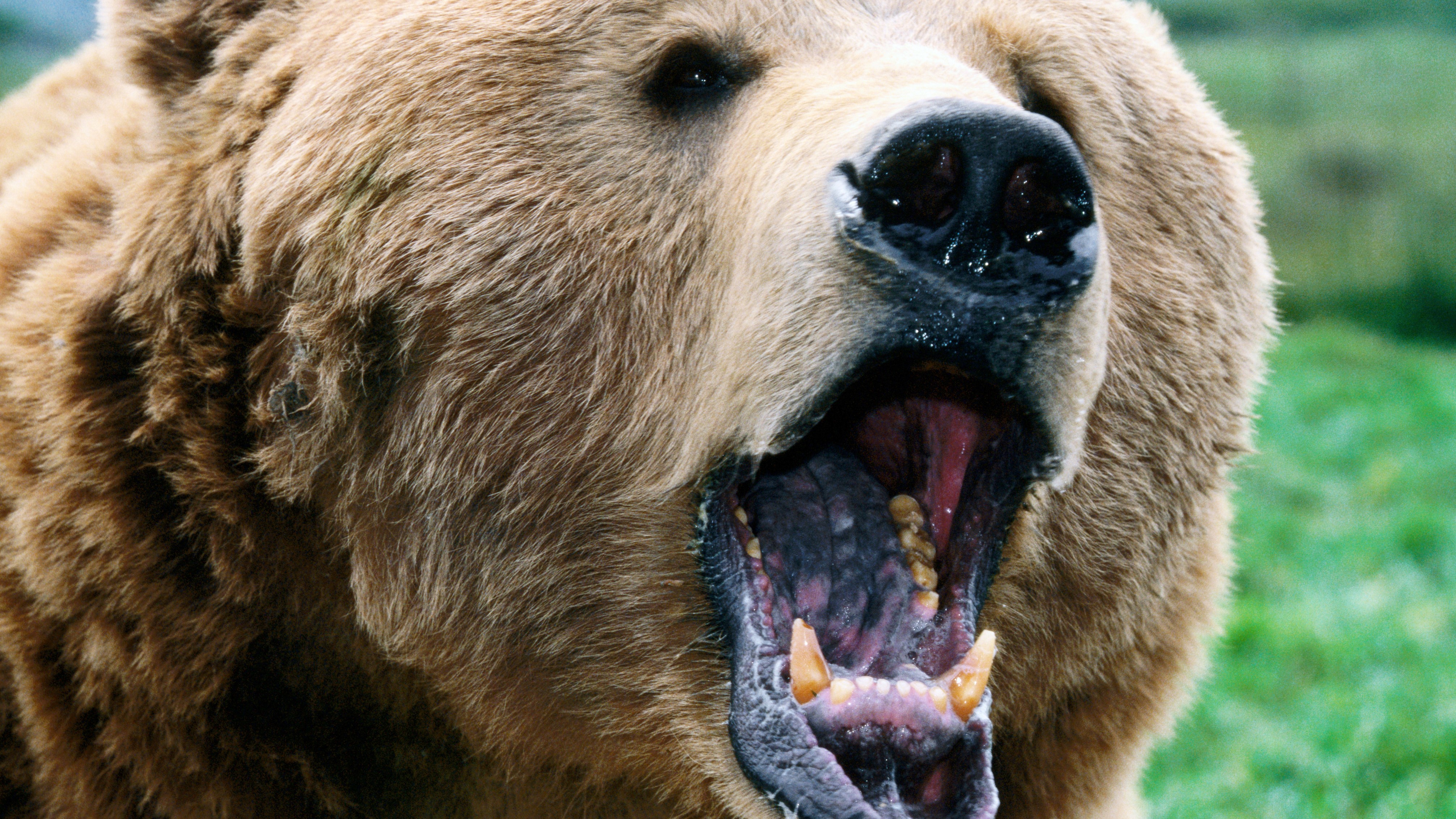
Where bears are concerned, it's better to be loud than sorry. Making a whole lotta noise is generally thought to be a good way to alert any unsuspecting fauna of your impending presence. Bear horns are one way of doing this, but when you're dealing with a potential encounter with a large and dangerous animal, you're within your right to ask: do bear horns work?
In this feature, we investigate whether you can blast a bear away from the honey pot for long enough to keep traveling through the backcountry, or if you’re just wasting your money and disturbing local wildlife.
So, do bear horns work or, like bear bells, is it possible that they just create a false sense of security, and disturb the surrounding wildlife unnecessarily?
Do bear horns work?
A review by the Zoology Department at the University of Montana found that loud, sharp noises were consistently successful at repelling bears, if only for a few minutes, and they did stop bears from charging too, however it should be noted that the subject matter here consisted of grizzlies and polar bears, not the much more common black bear.
The theory behind bear horns is that bears generally tend to give humans a wide berth, and the sound will also be unlikely anything they’ve ever heard (unless they, too, have an annoying neighbor) so upon hearing it, they’ll drop their nuts and berries and scamper deeper into the undergrowth to get away from it.
Meet the expert
What is a bear horn?
- A bear horn is an air horn that makes a loud piercing sound
- It uses a lockable button to sound 115-decibel blasts
- It’s not meant to be used as self-defence but to warn bears of your presence
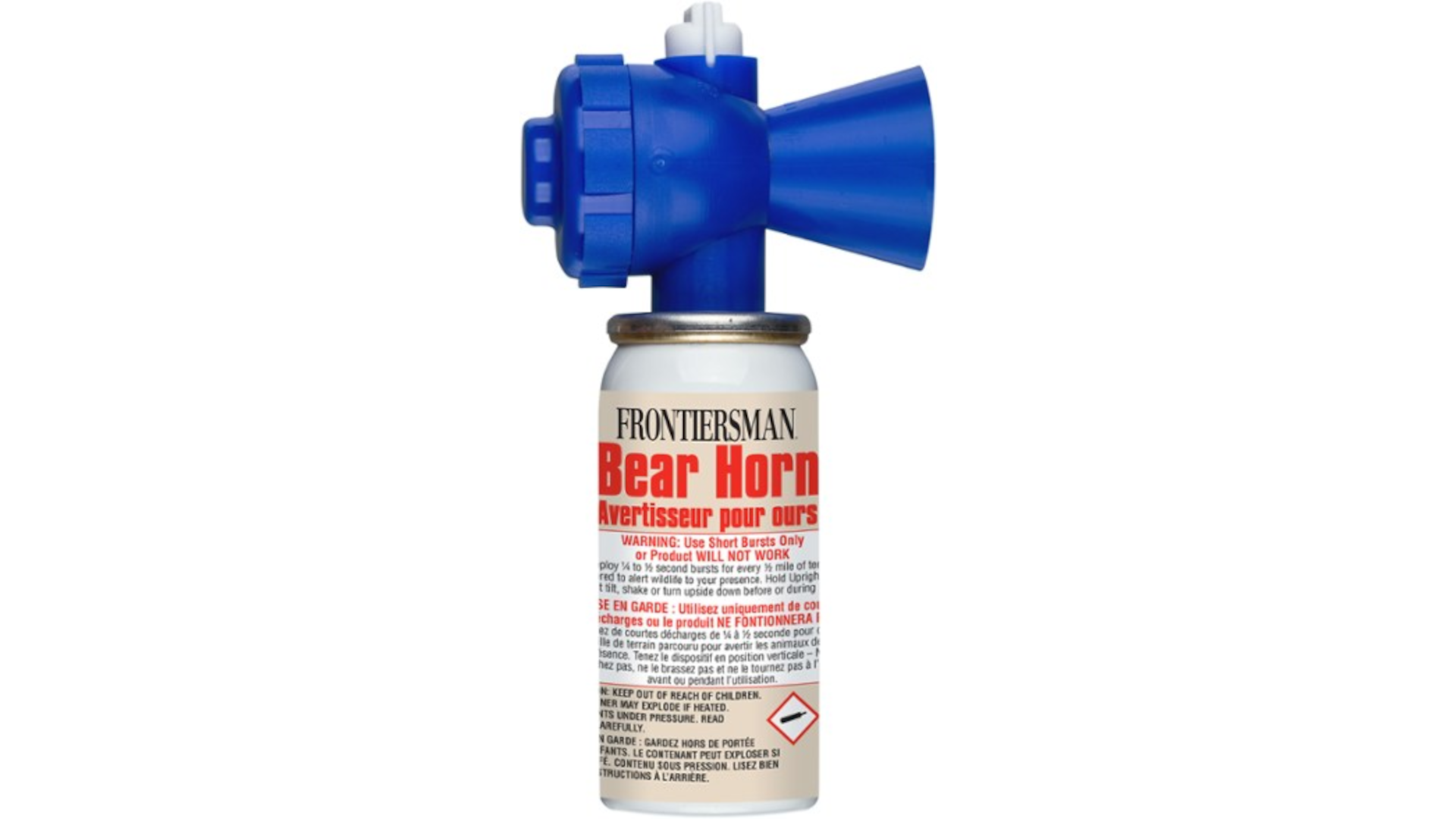
A bear horn is a small, lightweight air horn made of plastic that attaches to an aluminum canister and makes a loud, piercing sound. The horn is deployed by pressing a lockable button and contains a limited number of short blasts that are around 115 decibels – that’s louder than an ambulance and about the same volume as your annoying neighbor’s leaf blower. Bear horns aren’t intended to be used for self-defense; as in, you’re not meant to blast the horn in the bear’s cute, fuzzy face. Manufacturers of bear horns suggest deploying periodic, short blasts (no more than a second) while you hike to alert bears that you’re coming through.
Bears have a very acute sense of hearing, according to the Florida Department of Fish and Wildlife, about twice that of a human, but if they don’t hear the clump of your hiking boots, they should be able to hear your horn from a half mile away. Because bears are solitary creatures and tend to be wary of humans, the idea is that they hear this unfamiliar sound and hustle off into the woods, leaving the path clear for you.
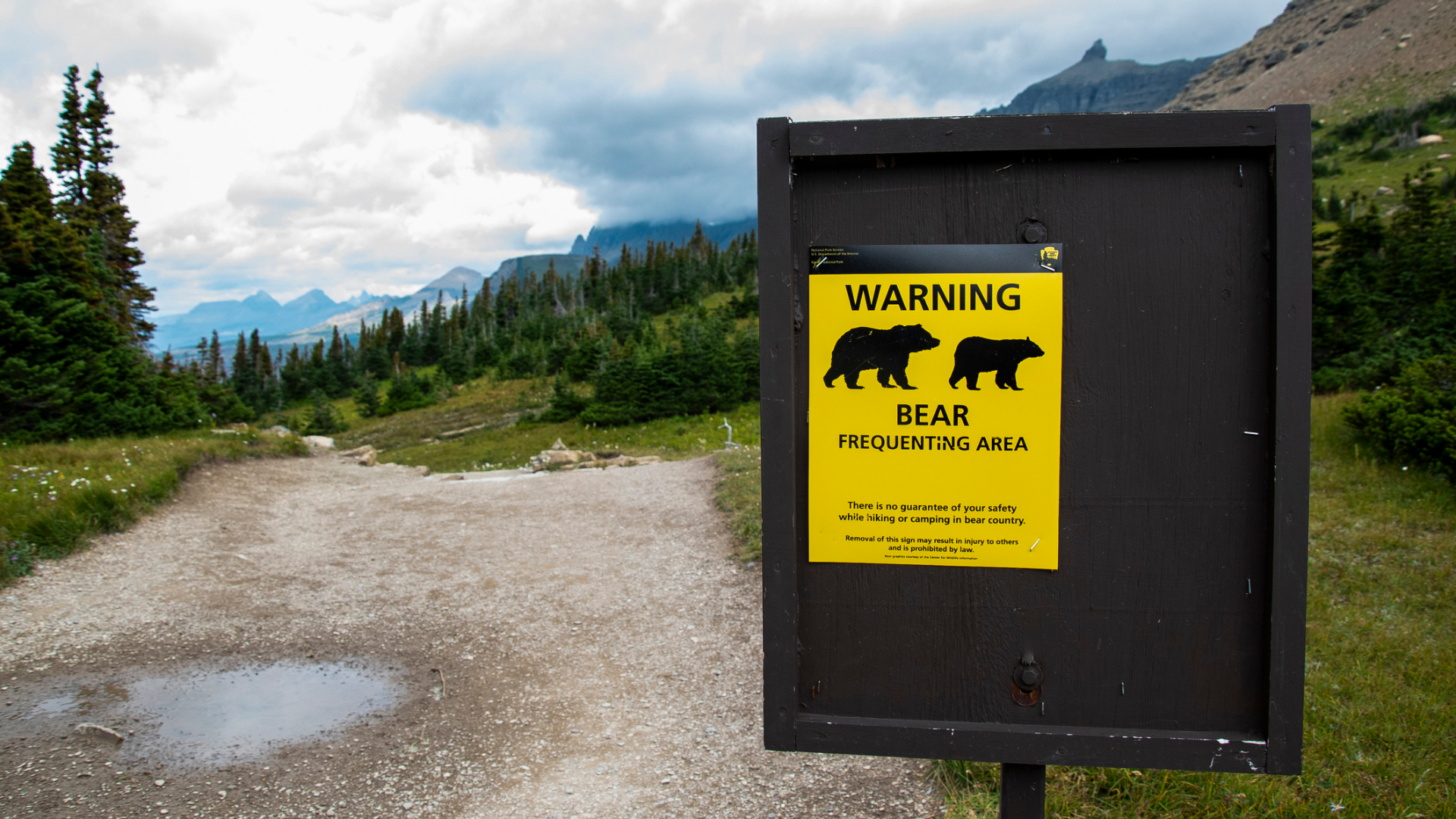
Do bear horns work against black bears?
- We couldn't find any evidence to suggest the effectiveness of bear horns against black bears
- Pretty much all national park rangers recommend making loud noises to repel bears
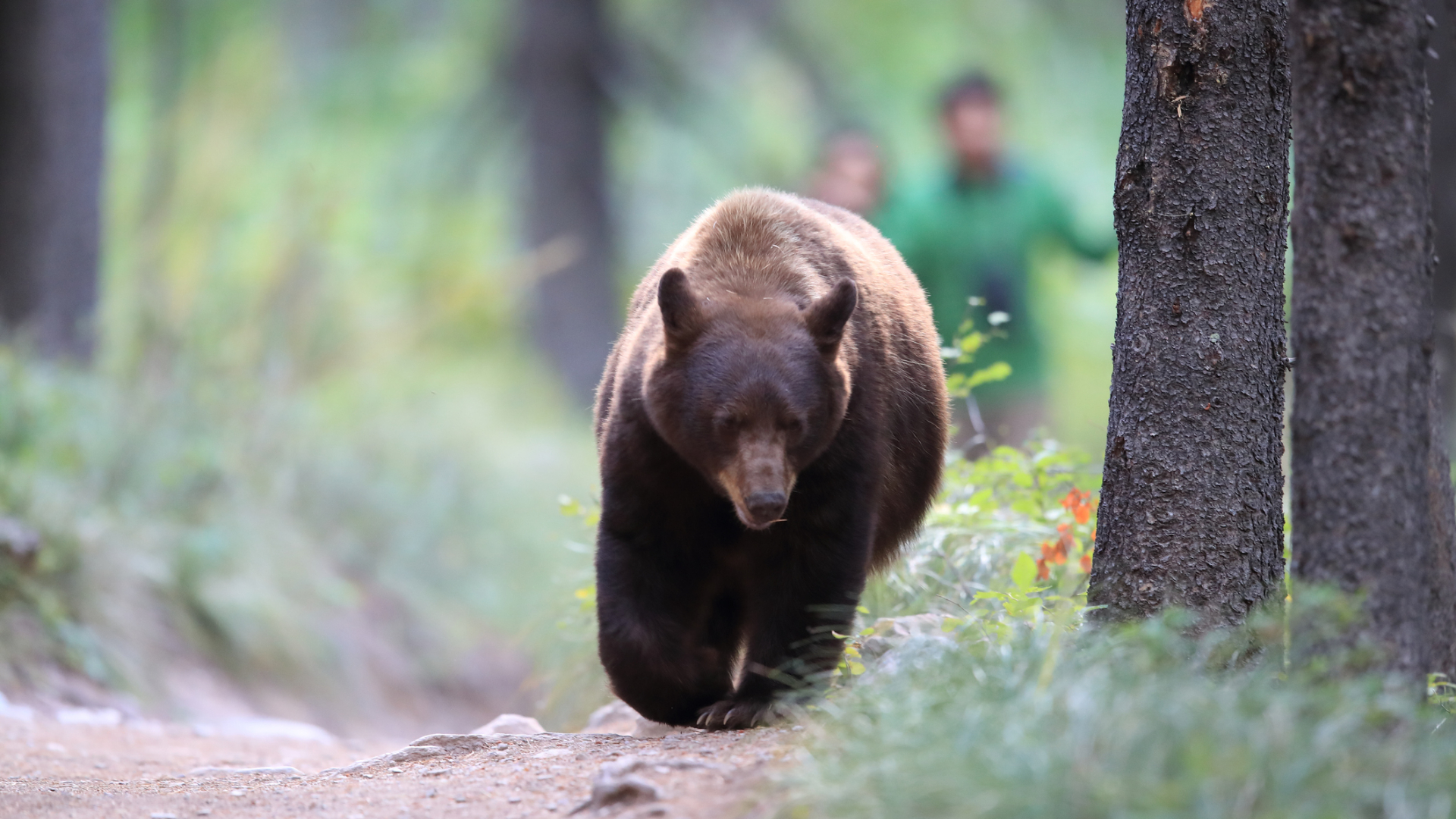
So bear horns are definitely great for hiking in Yellowstone National Park and treks across the Arctic, but what about somewhere like Colorado or California?
At the time of writing this article, we couldn’t find any studies, conclusive or otherwise, on the effects of bear horns on black bears. If anyone understands bear behavior, it’s likely to be park rangers at National Parks such as Yellowstone, Yosemite and Glacier National Park, which have about 1,500 black bears between them and sightings are common, while interactions are not totally unusual. Across the board, we discovered that each park clearly recommends making loud noises as a means of repelling bears and we figure these people have plenty of experience at it.
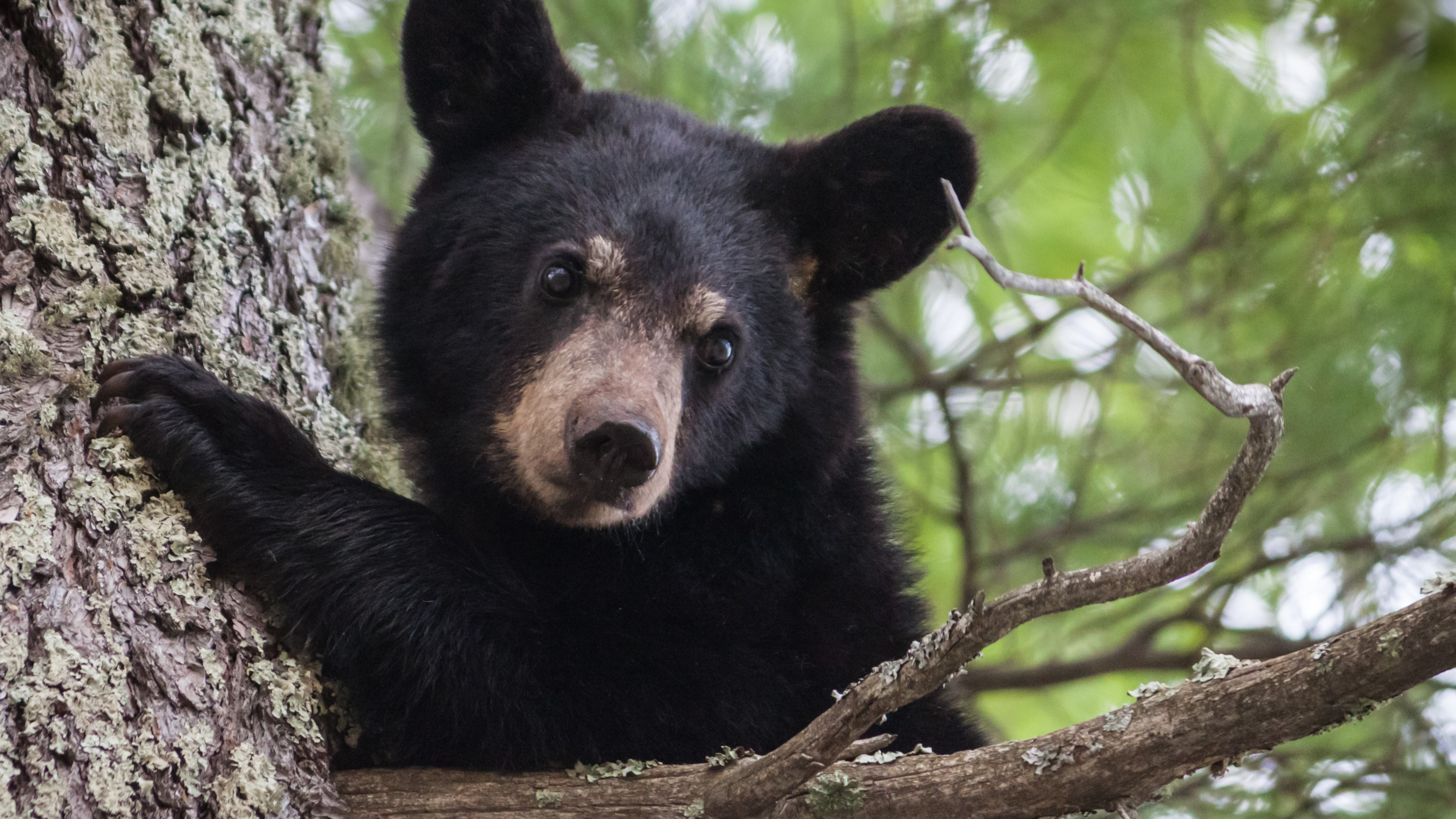
So, without any scientific data, a bear horn will probably be heard by any bear within a half mile radius and that bear is unlikely to come and charge you. At least for a few minutes, it’s more likely to stay where it is or move further away. Plus, bear horns are lightweight and compact, so they can easily fit in your backpack and they’re cheap, so it seems reasonable to carry one in bear country.
That said, it’s probably not ideal for the surrounding wildlife, or bird watchers, for you to be blasting your horn non-stop, but setting off the occasional blast if you’re feeling isolated, or think you can hear or smell a bear nearby, won’t do any harm and may even help. However, you’ll still want to know what to do if you meet a bear in case Smokey gets confused and runs towards you instead.
What are the alternatives to a bear horn?
There are many protective measures we can take against bear encounters when hiking or camping in the backcountry. In terms of items you can carry, two of the main alternatives are bear spray and bear bells.
Bear sprays are aerosol deterrent sprays loaded with high concentrations of capsaicin and capsaicinoids, similar to those used by the police and other law enforcement agencies. Bear spray packs much more of a punch though in terms of potency. It's designed to release a cloud of the formula as a vapor, incapacitating the bear by irritating its eyes, mouth and ears and giving you the opportunity to escape. It's also effective against mountain lions, wolves and all carnivore species.
Bear bells are small bells that sound a lot like sleigh bells. They can be attached to your daypack and make a jingling sound as you hike. The idea is to alert bears to your presence and lessen the probability of an encounter. Bears are shy, you see.
It's also important to know how to store food when camping. The recommend approach these days is to lock all food up in a quality camping cooler or a bear canister.







